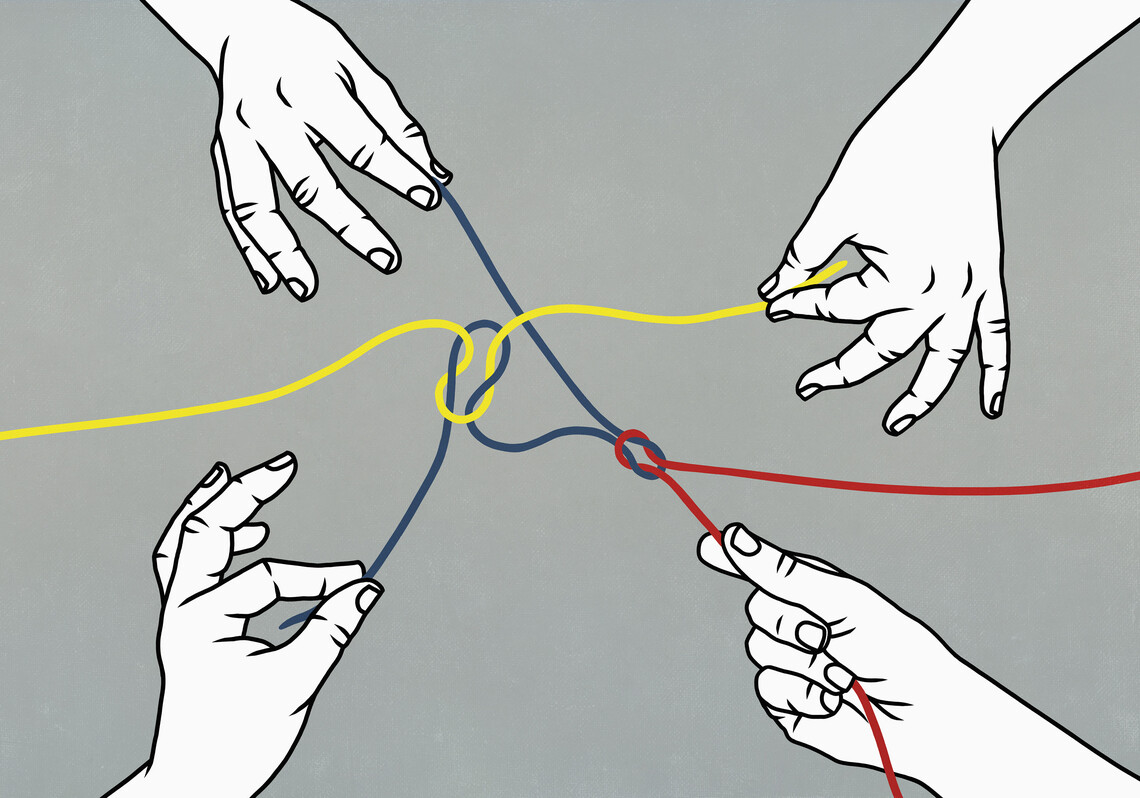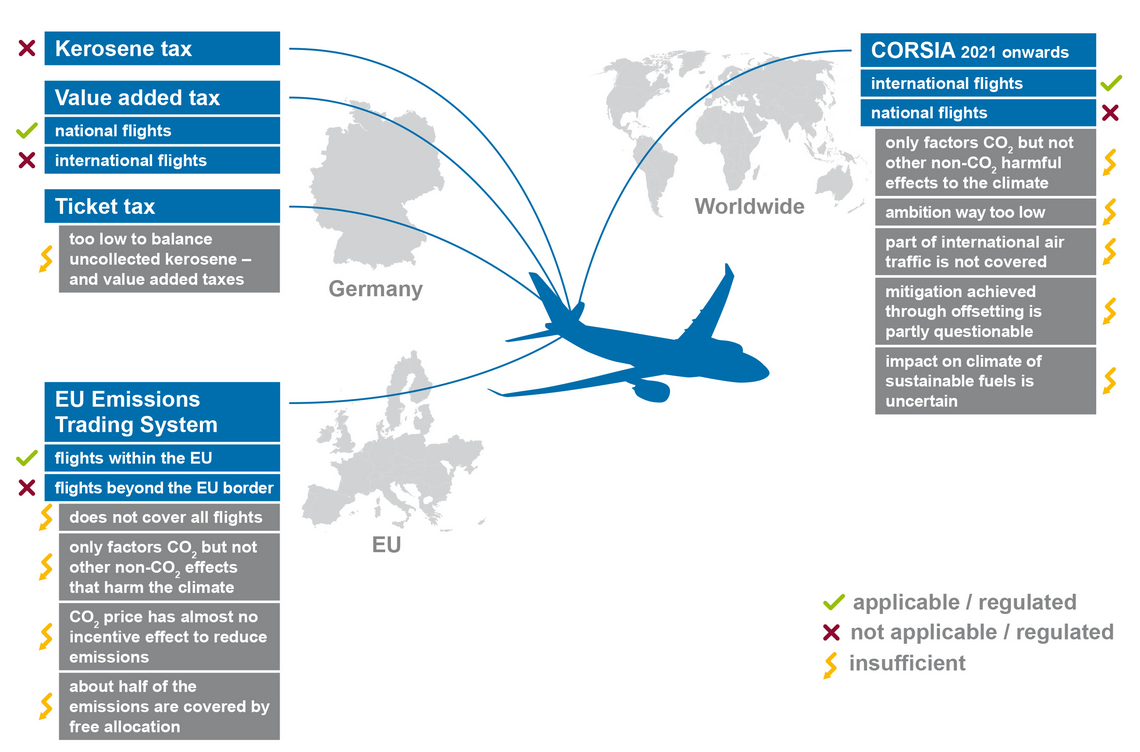
Flying and politics
Flying is cheap. And that is precisely why it is so attractive. How is it that travelling by plane costs so little compared to other modes of transport - despite its extremely harmful impact on the climate?
The answer is: unlike most other modes of transport, aviation is only lightly regulated. Other modes of transport have much higher levies and charges. So flying halfway around the world at low cost is only possible because of very high subsidies that are harmful to the environment. Germany alone subsidizes the airline industry to the tune of around €12 million a year. Thus, the price of an airline ticket does not reflect the high environmental costs caused by aviation. Precarious working conditions for service personnel underpin the system of cheap air tickets.
Subsidies on many levels
Aviation benefits from the lack of regulation in various ways. For example, flights - unlike travel by car or train – are exempt from energy taxes. There is also no value added tax on international flights. The ticket taxes levied in Germany only compensate for this to a small extent. The airline industry is also indirectly supported by government subsidies, especially with regard to regional airports.
At the European and international level, the market-based instruments of EU Emissions Trading System and the CORSIA system under the International Civil Aviation Organization ICAO should bring about more climate protection in aviation. Here we explain why the climate protection effects of these systems are low.
Stronger political regulation is the most important lever for influencing our flight behaviour and reducing air travel and decreasing the emissions of air travel. Binding, uniform rules can set incentives for climate-friendly behaviour without each individual having to consider the extent to which a flight can be justified.
